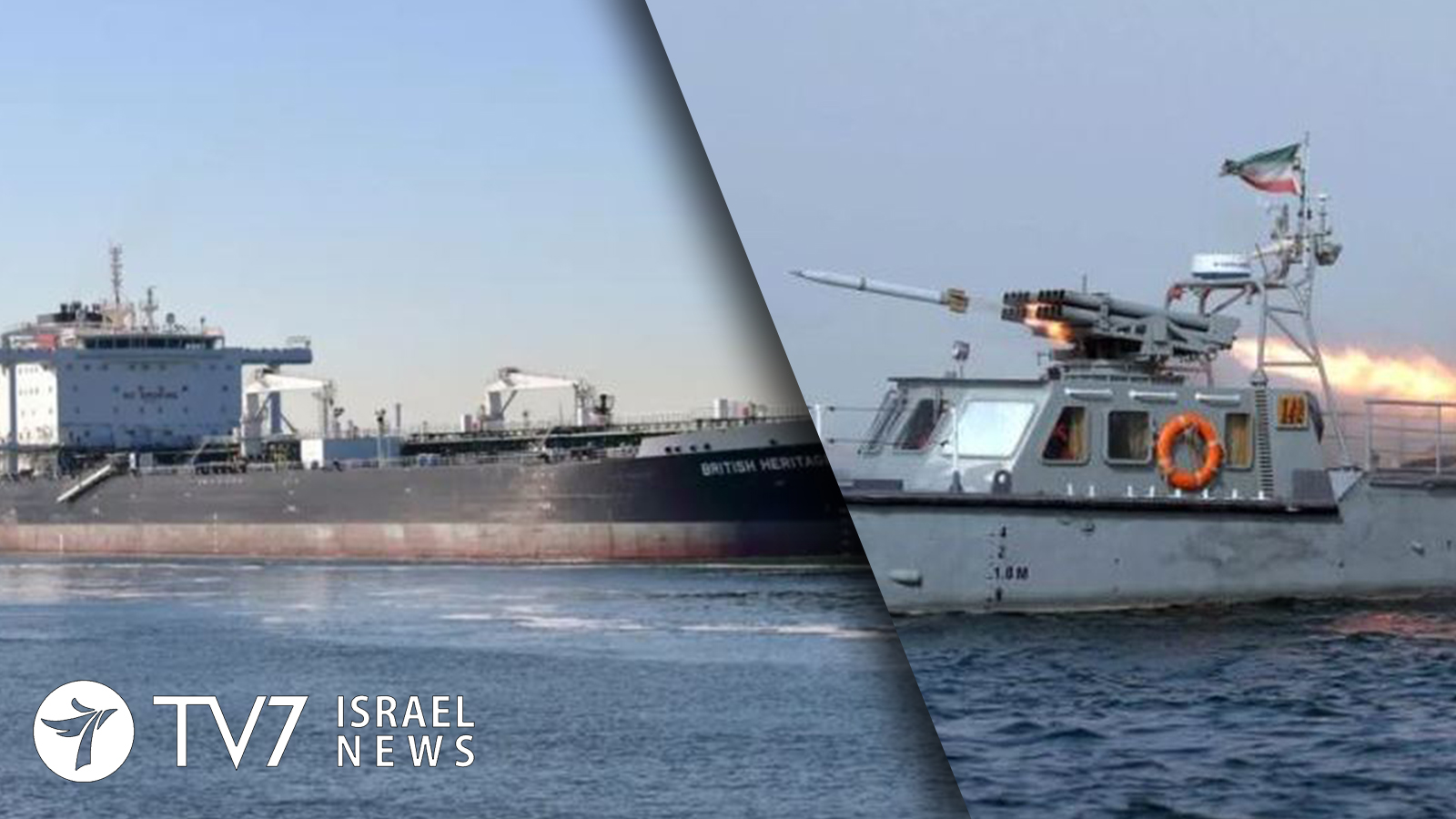The Islamic Revolutionary Guards Corps is today denying accusations from the United Kingdom that Iranian ships tried to seize a British oil tanker in the Persian Gulf yesterday. According to official confirmation of the incident from the United Kingdom Ministry of Defense, three Iranian vessels attempted to impede the passage of the “British Heritage” commercial oil tanker through the Strait of Hormuz on Wednesday, and divert it to nearby territorial waters belonging to the Islamic Republic.
In the wake of recent increased tensions in the Persian Gulf, the tanker was under the escort of the Royal Navy “HMS Montrose” warship, which the UK Defense Ministry said was “forced to position herself between the Iranian vessels and British Heritage and issue verbal warnings to the Iranian vessels, which then turned away.” London expressed concern over the action, which is contrary to international law, and said the UK “continues to urge the Iranian authorities to deescalate the situation in the region.”
A United States military aircraft reportedly flying overhead allegedly recorded the entire exchange, although a video of the incident has yet to be released. U.S. officials, speaking on the condition of anonymity, said Wednesday’s incident happened as British Heritage was at the northern entrance of the Strait of Hormuz. One source said “The Royal Navy HMS Montrose pointed guns at the boats and warned them over radio, at which point they dispersed,” while the other stated “It was harassment and an attempt to interfere with the passage.”
Marine General Joseph Dunford, the Chairman of the Joint Chiefs of Staff, announced on Tuesday that Washington is hoping to enlist allies over the next two weeks or so in a military coalition to safeguard strategic waters off Iran and Yemen.
The incident occurred almost a week after British Royal Marines boarded an Iranian tanker, Grace 1, off Gibraltar and seized it on suspicion that it was breaking sanctions by transporting oil to Syria.
Earlier on Wednesday, Iranian President Hassan Rouhani warned Britain would face “consequences” over the seizure of the Iranian tanker.
Tensions between Iran and the United States and its allies have risen sharply since Washington stepped up economic sanctions against Iran and moved to bring the country’s oil exports to zero as part of a “maximum pressure” campaign to make Iran halt actions that it said undermined regional security.
Iran has responded to the sanctions by starting to breach limits put on its nuclear activities under a 2015 deal with world powers.
Several oil tankers were attacked in waters near Iran’s southern coast in May and June, for which the United States blamed Iran. Tehran denied any involvement.
Last month, Iran shot down a U.S. drone near the Strait of Hormuz, prompting President Donald Trump to order retaliatory air strikes, only to call them off.
Meanwhile, as part of the flurry of international efforts to defuse the tensions, the top U.S. diplomat for East Asia said is he was looking forward to talking with Japanese officials about subjects including Iran, as he arrived in Tokyo for his first trip to the region since taking up his post last month.
U.S. Assistant Secretary of State for East Asian and Pacific Affairs David Stilwell is scheduled to meet senior Japanese diplomatic and defense officials through to Sunday July 14, to coordinate on global issues and deepen the U.S.-Japan alliance, before traveling on to the Philippines, South Korea and Thailand.
